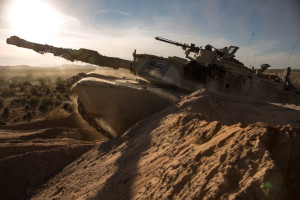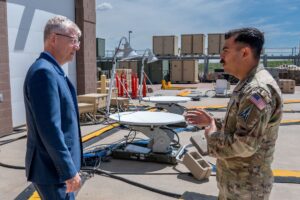By Ann Roosevelt In the latest of its continuing series of examinations of the Army's Future Combat System (FCS) program, the Government Accountability Office (GAO) suggests Congress hold off on full funding of the program in the Fiscal Year 2010 president's budget until specific conditions are met. "GAO suggests Congress consider not approving full funds for the program until several conditions are met, such as preparation of a complete budget for any program emerging from the milestone review," government auditors…
Contract Updates
UPDATE: Belmont Instrument LLC (Billerica, Massachusetts (SPE2D1-26-D-0004) – $48,750,000),
UPDATE: Belmont Instrument LLC, Billerica, Massachusetts (SPE2D1-26-D-0004, $48,750,000), has been added as an awardee to the multiple award contract for medical equipment and accessories for the Defense Logistics Agency Electronic Catalog, issued against solicitation SPE2DH-21-R-0002 and awarded Feb. 10, 2022.…
Gilbane Japan GK (Tokyo, Japan) – $53,097,051
Gilbane Japan GK, Tokyo, Japan, has been awarded a $53,097,051 firm-fixed-price contract for project LXEZ201072 Repair Special Operations Wing Facility B3524. This contract provides for a design-build project with the purpose of replacing existing concrete roof and repair 38,875 square-foot…
Raytheon Co. (Fort Wayne, Indiana) – $15,401,144
Raytheon Co., Fort Wayne, Indiana, was awarded a $15,401,144 firm-fixed-price contract to update the Advanced Field Artillery Tactical Data System. The amount of this action is $15,401,144. Bids were solicited via the web with one received. Work will be performed…
Gilbane Federal (Concord, California) – $17,249,472
Gilbane Federal, Concord, California, was awarded a $17,249,472 firm-fixed-price contract for the conversion of a building to a secure space. The amount of this action is $17,249,472. Bids were solicited via the web with three received. Work will be performed…










